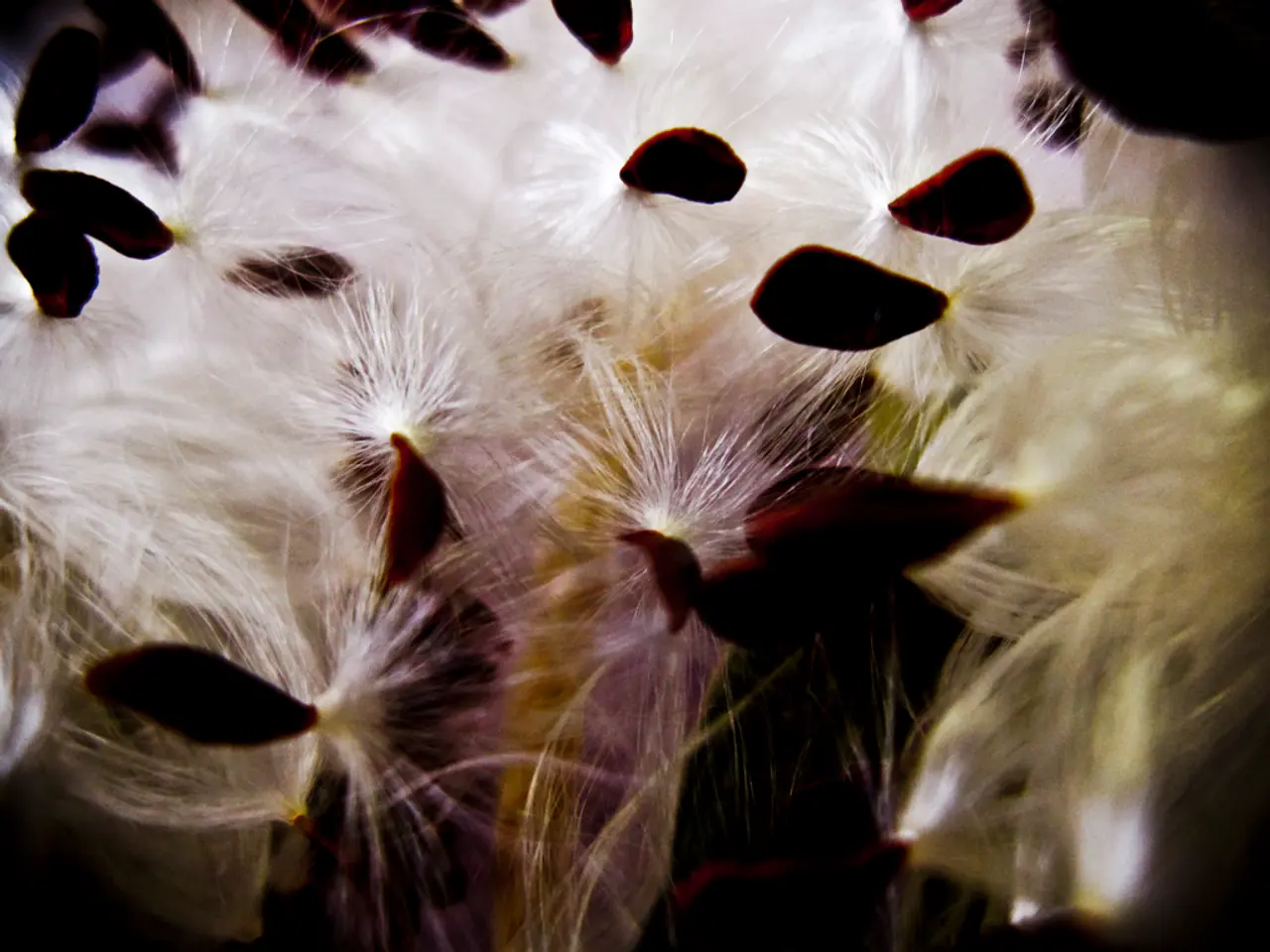Troubleshooting Non-Germination of Seeds: 9 Potential Causes and Solutions Explored
In the world of gardening, ensuring a successful seed germination is crucial for a bountiful harvest. However, low seed germination rates can be a common issue for many gardeners. Here's a guide to understanding and overcoming the factors that affect seed germination.
Seed Dormancy
Some seeds have an innate dormancy due to immature embryos, hard seed coats, or environmental restrictions. To overcome this, techniques like scarification (scratching the seed coat), stratification (cold treatment), or soaking can be applied.
Seed Viability
Old, improperly stored, or diseased seeds lose their ability to germinate. Using fresh, high-quality seeds stored in cool, dry conditions improves viability.
Moisture and Temperature
Seeds require adequate water to soften the seed coat and activate growth processes, but too much water can lead to seed rot or fungal diseases. Maintain temperature within the recommended range for your seed type, typically around 65–75°F (18–24°C) for many seeds.
Oxygen and Light Requirements
Seeds need oxygen for respiration during germination. Poorly aerated or compacted soil can reduce oxygen availability. Some seeds require specific light conditions to sprout; others may need darkness. Ensure you understand whether your seeds need light to germinate and provide appropriate conditions accordingly.
Pathogens
Using contaminated water or unsterilized compost can kill seeds and lower germination rates. Use clean water and sterilized growing media to maintain a clean environment.
Compact Soil in Container Gardens
Soil in container gardens can become overly compact, preventing seeds from forming healthy roots and sprouting. Use loose, well-aerated seed-starting mixes to avoid this issue.
Timing
Seeds that are planted too soon or too late may not germinate due to cold or hot temperatures. Planting seeds when your area is free of overnight frosts or when the season is appropriate for the plant you're growing can improve germination rates.
Pests
Aphids, nematodes, snails, wire worm, beetle worm, leaf hoppers, and other common pests can attack seedlings and plants. Using pest-resistant varieties and implementing appropriate pest control measures can help protect your seedlings.
Quality Seeds
Purchasing seeds from a reputable seed bank, grower, or vendor with a reputation for high-quality genetics can increase germination rates.
Seed Preservation
Seeds can lose their viability if not properly preserved, especially if stored in areas with high temperatures. Store seeds in a way that will keep them fresh for as long as possible, away from damp areas and without overheating and drying out to avoid rot.
Breaking Physical and Chemical Dormancy
Physical dormancy in seeds can be broken through pre-soaking or scraping the seed surface. Chemical dormancy in seeds can be broken by refrigerating them for a certain length of time.
Damping Off
Several distinct soil-borne fungi and fungus-like organisms cause damping off, including Pythium, Phytophthora, Rhizoctonia, and Fusarium. Before using trays, pots, and containers, make sure they're clean. If damping off has been an issue, such containers should not be reused. Overwatering can lead to waterlogging, compaction, and an increased likelihood of damping off issues.
By understanding and managing these factors—selecting viable seeds, treating dormancy if needed, providing proper moisture, temperature, oxygen, and light conditions, and using clean growing environments—gardeners can significantly improve seed germination rates and seedling success.
- In container gardens, using loose, well-aerated seed-starting mixes can prevent issues with compact soil, which hinders seed germination.
- Proper seed preservation is essential for maintaining seed viability, especially by storing them away from damp areas and without overheating or drying out.
- To overcome seed dormancy, gardeners can apply techniques like scarification, stratification, or soaking to seeds with immature embryos, hard seed coats, or environmental restrictions.
- In the world of gardening, ensuring a successful seed germination is crucial, as it contributes to a bountiful harvest.
- Gardeners can improve seed germination rates and seedling success by implementing appropriate measures for pest control, such as using pest-resistant varieties.
- Little to no light is required for the germination of some seeds, while others require specific light conditions; it's essential to understand the light needs of your seeds to provide the appropriate conditions.




